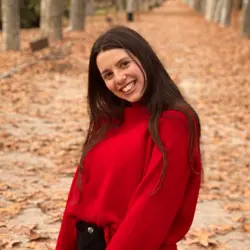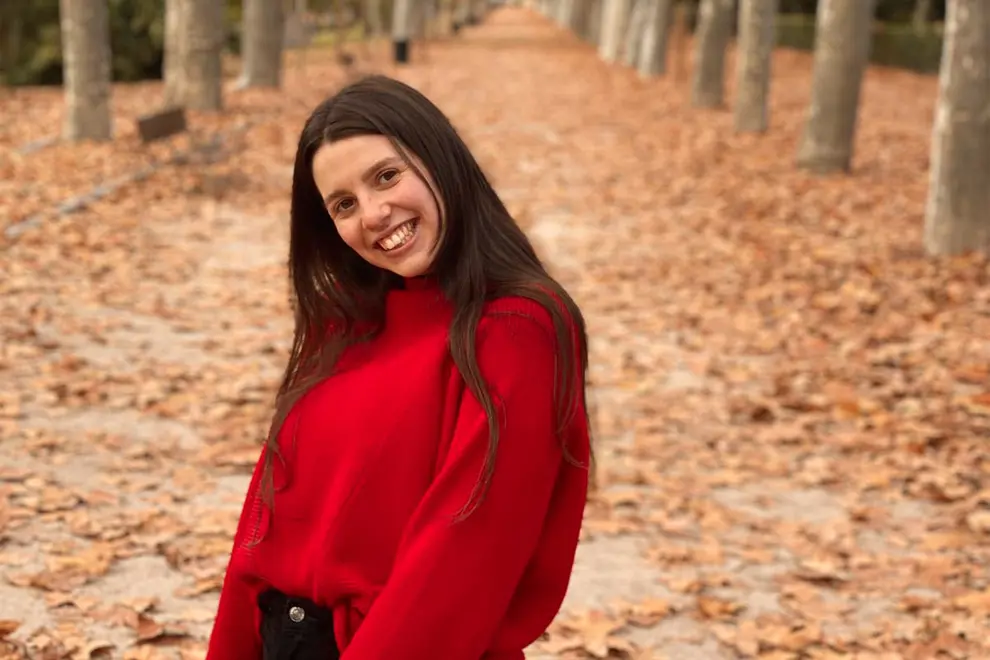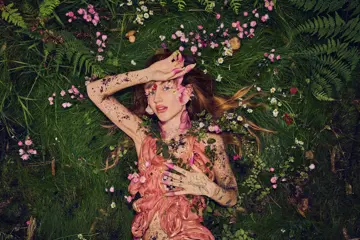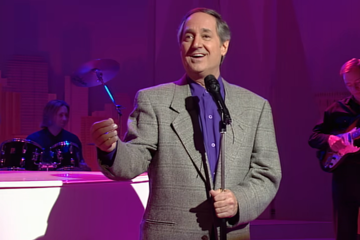 Kaytlyn Johnson
Kaytlyn JohnsonSo many creative young people ask this question: How do I find my way out of where I am now to the place I need to be?
Not just the next generation of artists and arts workers, but any young person with a passion they need to follow.
Those aspirations can seem even more distant for those growing up in smaller towns or rural isolation, which include many First Nations people drawn to an artistic life.
Singer-songwriter Kaytlyn Johnson is already on the path for her chosen career in music, with her first three singles creating a buzz, triple j airplay, supports for artists like Thelma Plum, and her debut EP set for release in 2026.
The First Nations woman of Palawa heritage grew up in the small town of Wynyard on the northern coast of Tasmania. She didn’t know how to make a career in music or connections that might smooth the way but she had the first vital ingredient.
She loved to sing and write songs and was unafraid of working hard to keep doing it. Which meant working two jobs and figuring it out for herself.
“In my high school we didn’t have a proper program for music,” Johnson says. “The instruments were broken, we had a huge turnover of music teachers, some of them sent us away to practice rooms while we taught ourselves and they focused on other things.”
Don't miss a beat with our FREE daily newsletter
Between part-time jobs she taught herself piano with the help of a maths teacher who stayed behind after school. The things that can really help a young artist, experienced mentors, open mics, discovering your musical tribe at gigs, are so much easier to find in a city. But Johnson’s message is that you can find a way.
“I didn’t know much about university growing up but I knew that I wanted to go to Melbourne,” she explains. “When I got to year 11 or 12 and looked at uni, Melbourne was a really multicultural community with a beautiful music scene. And I found there was financial support for people like me moving away to live on campus and study in the thick of it.
“In Tasmania I had to put a lot of effort into survival, working to support my family and study. Music was the end goal but I had a few things to tick off before I could fully focus on that. By the time I got to Melbourne it was a bit confronting to see how far I might have progressed if I had more access to resources like people do in cities.
“The first thing I discovered about the music industry was that most successful people have a wonderful community around them,” she adds. “When I moved I felt like I was five years behind where I would have been if I was from the city. That’s not something that should discourage you, sometimes it just makes you work harder.”
The decision to move to study was a crucial step in Kaytlyn’s life and working toward her long-term goal of music as a career. At the University Of Melbourne she graduated with a Bachelor Of Arts majoring in Climate and Weather as well as a diploma of music. She also completed an exchange semester at the University of Birmingham specialising in jazz voice.
“Growing up in the country can be an isolating experience but it really helps to find a few role models with the same aspirations as you,” Johnson says. “Having two younger sisters made me want to make sure they have a voice as well and that extends to all of the people in my community and all of our mob around the country.
“Community is such an important part of my music story and I am very grateful for the support.”
Kaytlyn wants to ensure the map to making a life in music is simpler to navigate for the next generation. In 2022 she was named as Tasmanian Young Australian Of The Year for her advocacy work uplifting young First Nations and rural voices.
“I felt like sometimes I was trying to sing out for help in following my music but there was a disconnect, nothing would get through for systemic change,” she explains. “My experience in Tasmania was you would look at the APRA AMCOS page and see grants for young musicians in other states and nothing in Tasmania. That’s one thing the government could do in Tasmania particularly.
“Generally I would like to see music lifted to have the same priority that we see for sport and physical health. The access to recording studios, singing lessons, music lessons, is really limited in those rural areas so that needs support with funding for the music curriculum in schools. That is a political issue, to find the value and potential of investing in young people in the regions.
“That’s not something we can change with the click of the fingers but the first step is listening to young people and what they want for their futures.”
Kaytlyn’s first two singles, Sunburn and Swoon, were shimmering, upbeat pop rock tunes, while the latest, This Side Of Heaven, finds her baring her soul on an intimate electro pop ballad, with ACT-based songwriter Sophie Edwards as producer.
“The song has been a long time coming. I wrote it in 2022 when I was going through a rough time in my life, battling my own relationship with myself and how that would affect my ability to love others going forward,” she explains.
“With a song like this it’s your baby and you really want to do it justice in the studio. There was a long period of writing, feeling the dynamics before getting into the studio and trying to translate all that emotion into a full band sound.
“We recorded at the state-of-the-art studios at the Australian National University with a string section and live drums,” she adds. “I’m so grateful for the guidance and patience of Sophie and Will Kepa in Canberra allowing me to perfect every word and instrumental layer.”
As a music journalist across four decades, this writer has interviewed hundreds of musicians, some at the top of the tree, some just starting the climb with the same questions Kaytlyn had. Every story is as different as the music these people make, what works for one doesn’t mean it will work for another.
I could boil down those 40 years of exploring what makes people tick to these observations: There will be obstacles and often those are what makes the artist and gives them their own distinctive voice. What works in the music world changes all the time but everyone discovers what doesn’t work, which is not making music, not working on your art. And you can’t do this alone; you have to make that step to find your village.
After completing her studies Kaytlyn has reconnected with the joy of playing and discovering original music at shows: “You never know who you are going to find at a gig,” she says. That’s a special connection, the place where you meet so many fantastic people.”
The reality of working in the performing arts in Australia is that only a few will be able to support themselves without having a few different balls in the air. Kaytlyn also works as an audio engineer at gigs.
“I’ve learnt so much from watching lots of different performances,” she continues. “It’s great to be on the other side of the stage to learn that craft as well. It helps you understand what a sound engineer needs from you as a performer and how you can get the best out of the show.
“As an engineer or a lighting designer you are so much part of the show, just as much as the talent is on stage. And it’s a lot of fun!”
Resources for musicians in regional Australia are available through platforms such as Singing Our Futures, the late Archie Roach’s legacy program mentoring emerging talent in songwriting, recording and live performance; and Music NT, which focuses on offering programs for emerging artists throughout the Northern Territory.
Other resources include Grow The Music, which provides mentoring for music-makers through regional and remote Australia; Creative Australia, which offers grants for more established artists including music and support for organisations; and Music Viva Australia, which provides music programs for schools, classical concerts, online resources and professional development.
This piece of content has been assisted by the Australian Government through Music Australia and Creative Australia, its arts funding and advisory body


















